Treatment, medication and purchase of housing for two people
Treatment, medication and purchase of housing for two people
Para que é que vai angariar fundos hoje?
Actualizações1
-
Ler mais
Dear Friends,
As we welcome 2025, I wish you a year filled with extraordinary moments and meaningful achievements. May each day bring fresh opportunities for growth, and may you find strength to overcome any challenges that come your way.
Let this year be one of renewed hope, deeper connections, and realized dreams. May your life be enriched with good health, prosperity, and countless reasons to smile.
Here's to new beginnings and the endless possibilities that lie ahead. Happy New Year!
Warmest wishes.
Ainda não há comentários, seja o primeiro a comentar!

Adicione actualizações e mantenha os apoiantes informados sobre a evolução da campanha.
Isto aumentará a credibilidade da sua angariação de fundos e o envolvimento dos doadores.
Descrição
One Day Maciej Couldn't Take It Anymore: He Covered Two Slices of Bread with His Morning Pills
Maciej reached his breaking point one day. He took two slices of bread, spread margarine on them, and sprinkled his daily dose of around 30 tablets all over. He captured a photo of his creation, captioning it, "This is my breakfast." He then shared it online, and that's when it all began.
On Maciej's Twitter account, named "Pustelnik5," strangers attempted to intervene, motivate, or console him.
One kind lady, whom he had never met before, wrote, "Take care not to harm yourself."
As Maciej - standing tall at 186 cm with a weight of a hundred kilos - shares this, tears well up in his eyes like those of a child.
And this was his regular breakfast. Every day, he has bread with margarine, takes 30 pills in the morning, and by evening, he takes several dozen more. Doctors have forbidden him from working, so he lives on 645 PLN per month. The local social welfare office (GOPS) transfers this amount to him. Additionally, he has 5 PLN per day for food.
"How?" I can't believe it. "How do you live on five PLN per day?"
"I don't live," Maciej replies. "I exist."
But even so, he worries most about the cats.
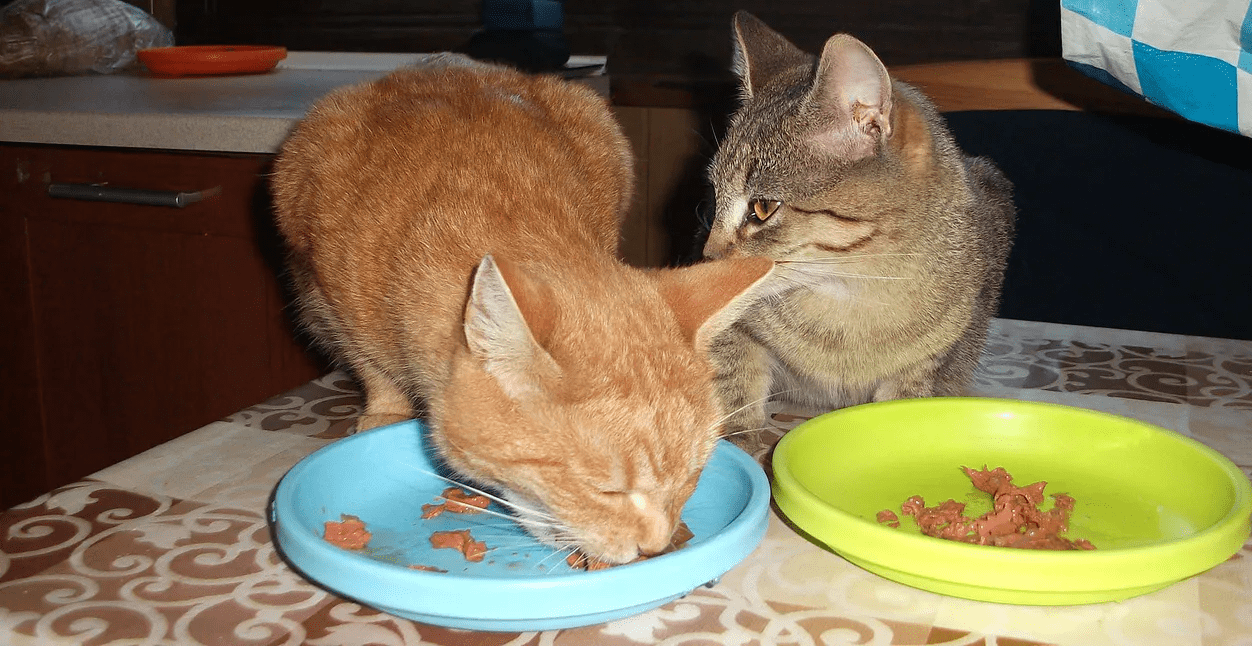
IN THE MIDDLE OF NOWHERE
Maciej is 57 years old, with dense gray hair neatly trimmed to two centimeters, a well-groomed beard and mustache, a warm smile, and stylish dark-framed glasses. He speaks vividly, acting out scenes and characters.
If he were to wear a suit and appear at a conference or a banquet, he could easily pass for the president of a serious organization, quickly winning over both the organization's members and people in general.
Except for that leg. He wouldn't be able to put on shoes because his left foot has been bandaged for weeks.
"Do you see, ma'am? It's oozing at the bottom and the top. Not long ago, there was a gap so wide that you could fit your hand through along the length of the bone in the foot. Now, I don't have those three outer bones anymore, from the side of the little toe. Just soft tissue supported by the skin. We'll see, maybe it can be saved."
Due to this, Maciej has a complete ban on walking.
But he still has to walk to the bathroom. And most importantly, he has to feed the cats.
Reaching Maciej is challenging. He lives in the village of Więciórka, 60 km from Krakow (Poland), almost in the mountains. The street where his house stands is so narrow and short that it doesn't even have a name.
You need GPS coordinates or precise instructions on how to get there. Behind the village church, turn right, up a very steep road (with a gradient of several degrees), and after 100 meters, you're puzzled.
Next to a substantial two-story house, you have to turn right, but it looks as if you're driving into someone's yard. Two more houses to the right, because on the left, there's a slope of the hill, and there it is: the house where Maciej lives.
Like something out of Reymont's "The Peasants."
Wooden, with the exterior boards weathered by the sun, rain, and wind. Inside, walls made of large wooden logs, with some patches of blue paint here and there. In a shade of royal blue - a whimsical twist of fate.
The entrance door isn't airtight; in winter, it lets in snow drafts.
The steep tin roof without any mineral wool or other insulation. Cracks as in Maciej's foot in some places, and in others, so large that you can fit your whole hand in.
Maciej doesn't fit this house.
He is warm and welcoming, while the house is cold, with a chill that goes deep into the bones.
He is cheerful, as if bringing light, but the house is dark, with thick walls and small rural windows.
He is urban and drawn to people, while the house is on the edge of the village, where nobody peeks in.
But he found himself in a critical situation and took what reality presented to him
FIVE ZLOTYS
He doesn't go to the store. The store comes to him. Only the vegetable truck, and only from spring to autumn. Every two weeks between 12:00 and 13:00, a farmer drives through the village. His assistant goes door to door, asking if there's anything needed.
Maciej buys basic products from them: potatoes, cucumbers, carrots, apples. Inexpensive, but sometimes even that isn't enough. Once, when the farmer arrived, Maciej said:
"Not today. I don't have any money."
To which the farmer replied:
"What would you like?"
And he gave him a big cabbage and a kilogram of tomatoes.
The bakery comes more often, on Wednesdays and Saturdays. But you need to get up early because the truck arrives around 6:00 in the morning. Maciej buys rectangular molded bread because it fits better in the freezer. 400 grams for five złotych.
Expensive. But it's enough for a few days. For three or five days - depending on whether Maciej cooks vegetable soup. Sometimes he lacks vegetables, and sometimes he lacks strength. Because his foot hurts so much that it's tearing him apart, or other illnesses launch an attack.
Or recently, Maciej got pâté in 135-gram cups.
"I divide it into four portions, spread it on bread, and I've got my meals for the whole day sorted! Of course, then I don't use margarine."
One thing is certain: nothing goes to waste at Maciej's. When the nurse, who comes twice a day to change the dressing on his diabetic foot, brought a kilogram of homemade white cheese, he ate it until not a single crumb was left. In every way possible, even three times a day: cheese with garlic, cheese with chives (because his onions sprouted unexpectedly), cheese with a bit of yogurt left.
For this purpose, he also has a toaster. He reheats dry bread in it. Or he throws a slice onto the pan, makes a hole in it, and cracks an egg into it. And lunch is ready.
"I'm overweight," he says with a hint of regret. "Although I try to live healthily, I've never drank or smoked. So it's not because I overeat, but due to my illnesses. The doctor explained to me, 'You might not eat at all, and still be heavy in weight.'"
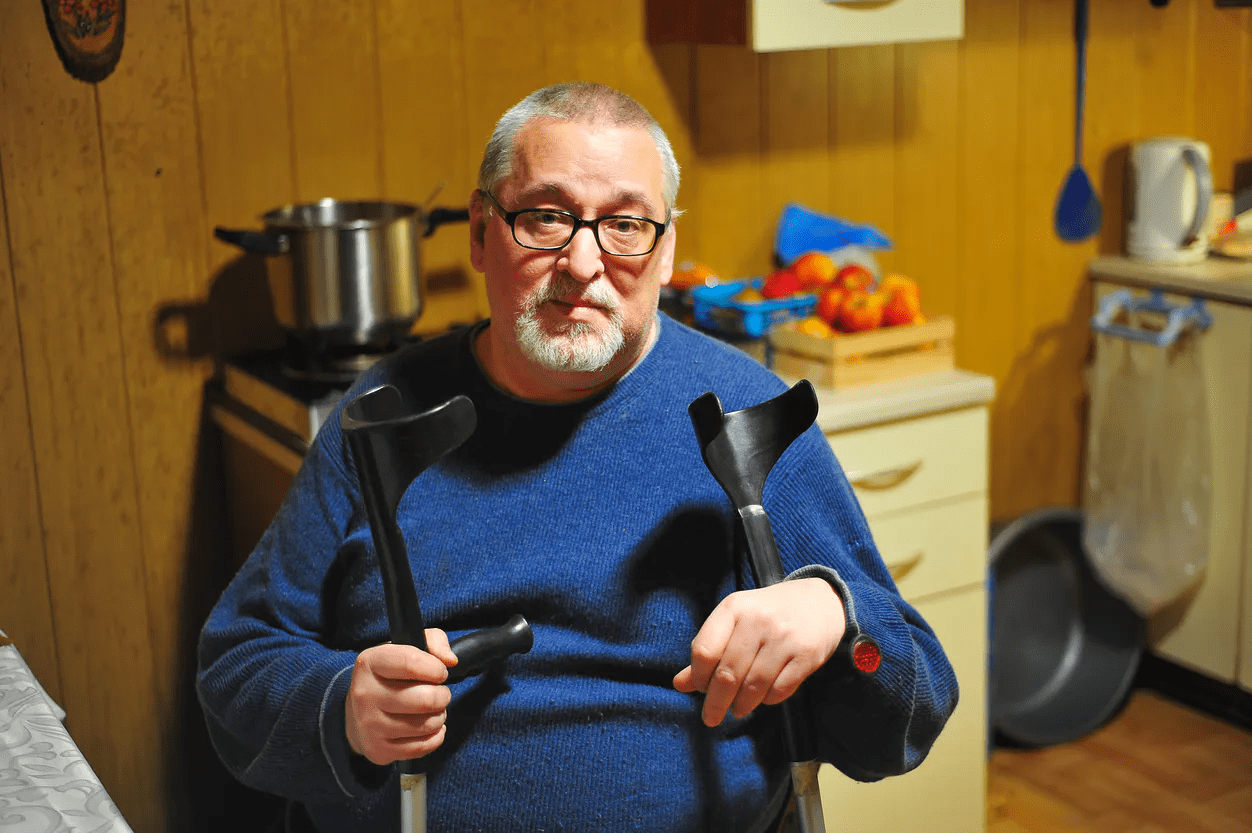
Both the diabetologist and the ophthalmologist keep telling Maciej: "Absolutely stop using margarine!" It's unhealthy, trans fats clog arteries. Only butter! Healthier and good for the eyes.
But how can he buy butter when it costs 12 zł per block in the village store? That's two and a half days' worth of Maciej's food budget. That's why Maciej only sees and tastes butter when his cousin Tomasz comes to visit and goes on a big shopping trip to the supermarket in Myślenice, almost 30 km away by bus. There, a block costs 5.90 zł. Then he can even afford to make pierogi. 450 grams for 4.5 zł, while in the village, it's 11 zł. Or six croquettes for 4.50 zł, whereas in the village, they're twice as expensive.
Moreover, Maciej won't go to any store, how could he? The doctors instructed him not to get out of bed ("bedridden patient"), and he can only leave the house with a caregiver and only in a wheelchair. He even has a wheelchair. But he doesn't use it, how would he go down that steep road to the village? Or how would he get to his doctors in Krakow? Who would help him load the wheelchair onto the bus?
THE ONE WITH THE CATS
Too many thresholds.
That's how Maciej's in-laws saw their daughter's marriage to him, because they are educated and well-positioned, while he is not.
And now the marriage is no more, but the thresholds still remain. The one between the corridor and the kitchen is 7 cm high, the one by Maciej's bedroom is even higher: 10 cm. There's no chance, Maciej can't navigate his wheelchair even within his own place.
Solitude, cold, discomfort, yet Maciej still runs an open household. Even if he locks the main door, the cats find their way in through a hole next to the entrance. Or through another one in the basement and further through the wooden door in the corridor, which Maciej intentionally leaves slightly ajar. The same in his room: he places a piece of wood under the door so it doesn't shut and cut off the cats' path.
It doesn't matter that through these holes, cracks, and unlocked doors, drafts come in, making it even colder.
For the cats, Maciej would do anything.
And now he has 12 of them, maybe 14. He never knows the exact number, because some disappear, and others come. It happens that some are battered, visibly injured, like one with a broken pelvis, or others with injuries that are only revealed in their behavior: a cat remains cautious and wary, not approaching humans. Like Toshia, the red one without a tail, who's cautiously peeking into the kitchen.
"You must have been really hungry to come here, even though there's a stranger around!" Maciej greets her, explaining to me, "She's afraid of everything: sudden movements, coughing, dropping something. The son of our neighbors, back when I still lived in Krakow, impaled her with a nail and tore off her tail. He was about 14, she was three months old. He ripped off her bladder and part of her behind. She underwent three difficult surgeries. When she started using the litter box again, I couldn't be happier: God, she'll survive! Such fate: the next cat crossed my path, and the next one was saved."
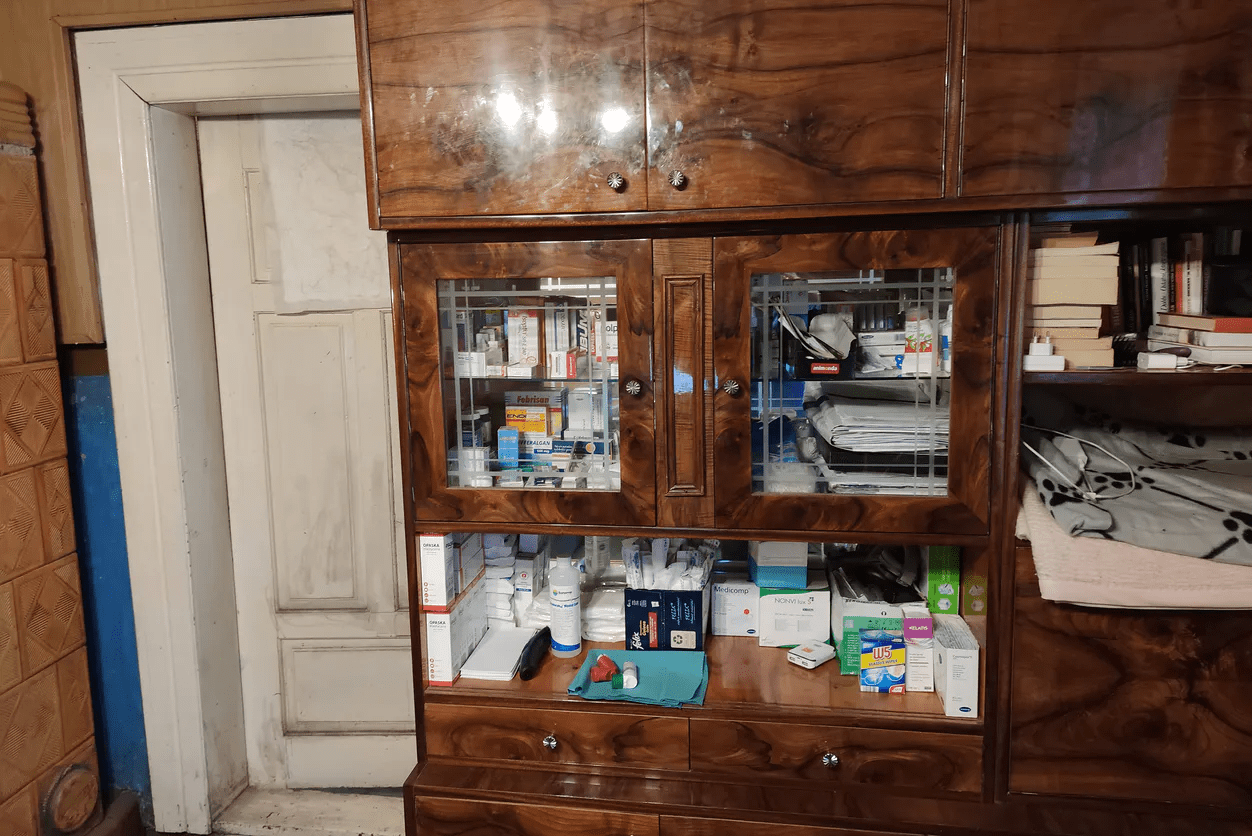
But Maciej's home doesn't look like those scenes from movies about eccentric animal lovers – where 14 cats are lounging in a room: on the sofa, the piano, the chandelier, and the table; everywhere is covered in fur and the scent of cats. At Maciej's, maybe three cats stay indoors, and the rest come to eat and spend the night in the attic or the stable next door, where it's warmer than outside. So, Maciej feeds them, tends to their injuries, treats their illnesses, and even assists with births.
Once, even the pastor's cat found her way to him. Maciej's house is on a hillside, overlooking the church below. The cat peeked in - into the house and the food bowl - and stayed. Weeks went by, and Maciej noticed that she had gotten so plump that her belly almost dragged on the ground.
After a few months, he discovered that she had given birth to three kittens. Two were energetic and well-fed, while the third was thin and frail. It turned out to be her sister.
The priest happened to come to bid farewell to the residents, as he was changing parishes, and Maciej said to him:
"Wait a moment, Father! What about child support?"
"I beg your pardon?"
"But Father, it was your cat that gave birth to a trio, who's going to provide for the little ones now?"
But in the village, everyone knows that Maciej wouldn't leave any cat in need. He organized help. A friend took the whole family to a shelter. The siblings found new homes after just three months. The mother cat was spayed, healed, fed, and groomed to the point that Maciej almost didn't recognize her. She also has a new home now.
"Here in the village, people laugh at me for helping cats," he explains. "They believe that cats are meant to chase mice and rats."
Yet Maciej believes and feels that cats are meant to be loved.
That's why he takes care of them, pampers them, and talks to them. When someone asks, "What do you need?" he first mentions cans and pouches of cat food.
"And you?" I ask. "What do you like but haven't eaten in a long time because you can't afford it?"
"I'd have to remember. You see, I've grown accustomed to modesty. And I've become used to scarcity in recent years. I can't remember the last time I ate fish. The doctors recommend lean meat, broccoli, spinach. But in our village, the farmer doesn't bring such delicacies, and when my friend Tomek brings meat from the market, it's the cheapest. I grind it, divide it into smaller portions, and freeze it. I always try to make a lot more out of a small amount."
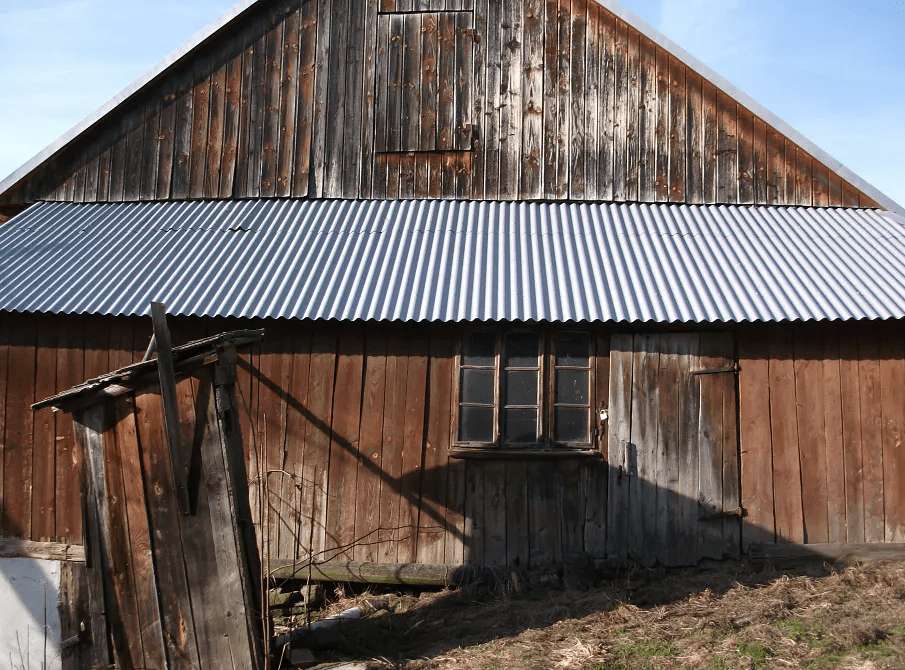
SHORTCOMINGS
Maciej didn't have many things in life.
Childhood.
As the oldest among his siblings, he took care of his younger brother and sister. Their parents worked. When he was six years old, his two-month-old brother fell ill and then passed away on Christmas Eve. This left a mark on the whole family.
Education.
Again:
- "I had to stay at home and entertain the kids."
He also had to earn money and give it to his parents, so he went to a vocational school for gastronomy. He had a knack for it and worked as a waiter and a buffet attendant for a long time. People were drawn to him, and he to them.
Love.
Maybe there was even some at the beginning, but his in-laws didn't accept Maciej.
His wife was a doctor, and he was running a shop selling second-hand clothes at the time. There was demand for it, and it was fashionable. The shop was small, but it brought in profits. Unfortunately, not the kind his wife and her family wanted. They pressured him: change your job. So, he became an assistant in the IT and accounting department - a grand title, but it was just a job in accounting. Besides three doormen, he was the only man in the company. And he was still nobody to his in-laws.
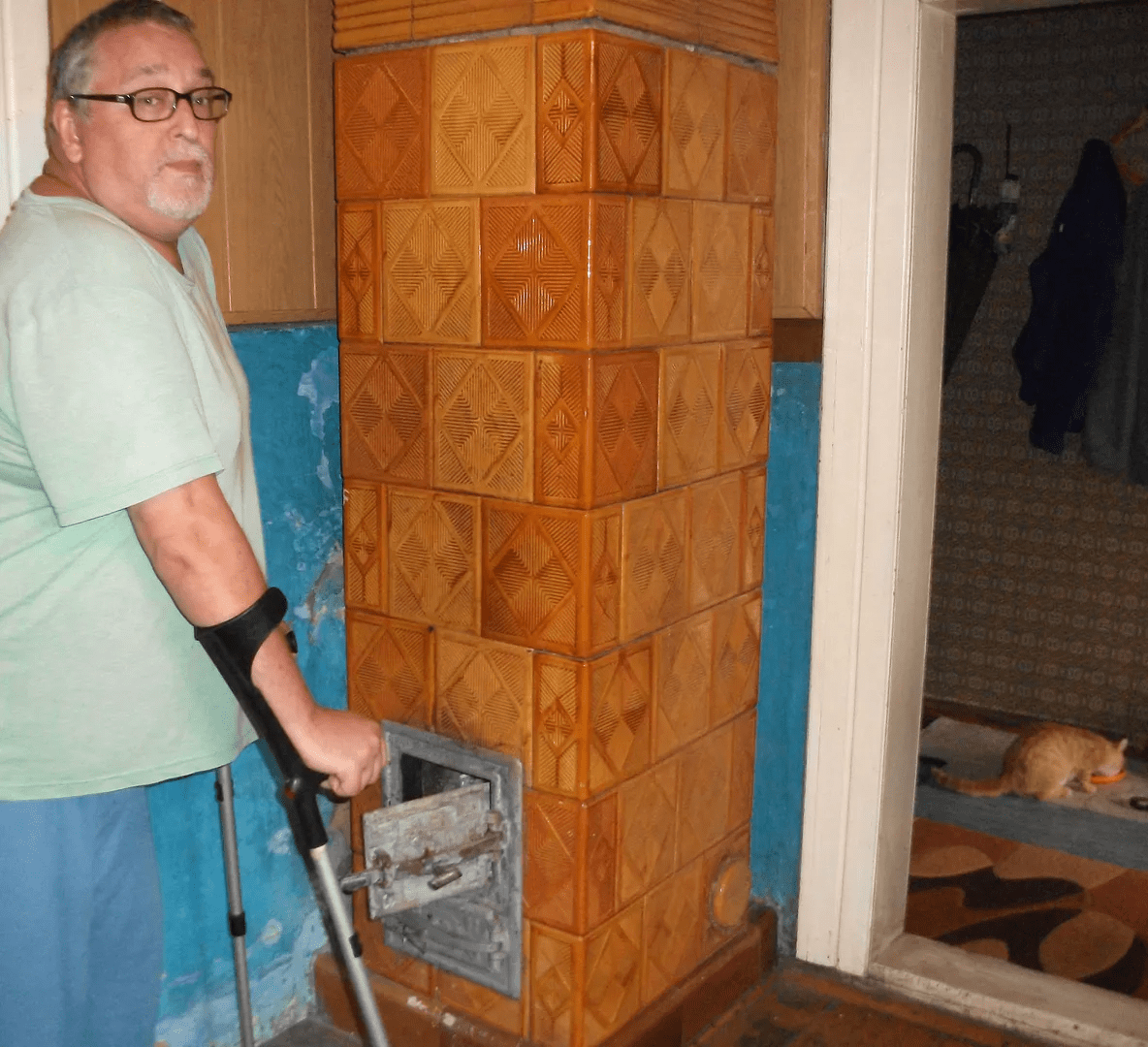
Meanwhile, the head accountant declared: "Mr. Maciek, either education and a high school diploma, or we have to part ways."
He was already doing high school externally.
But then a culmination of events: a wife, a child, a move - caused him not to finish. It's not that he failed. He didn't even attempt the exams for Russian, math, and chemistry.
He also wasn't fortunate.
He divorced, lost his job. He found a new one at the cooperative agricultural wholesaler. They needed someone to deliver goods, but he didn't have a driver's license due to weak eyes. He brought a friend to drive, and he stayed in the role of distributing and recording eggs and other products.
They became buddies at work and devised a plan to buy an apartment together. It was the 1990s, commissions were good, they earned a decent amount, and they saved up.
One day, Maciej went away, and his friend called, saying that there was a flat available. It was small, but they could move in right away. Maciej transferred his entire savings to him, and upon his return, he discovered that only his friend's name appeared in the notarial ownership deed. His friend downplayed it:
- Don't worry. We'll earn more, buy another one, and the next one will be in your name.
Maciej believed in people, he believed in his friend too.
They lived together for six years. Sometimes one would be home less, other times the other. His friend even went to Germany for a while. Then he returned. One evening, as usual, Maciej came home, and the locks were changed.
It was January 2000, fifteen degrees below zero. He started calling friends because he had nowhere to stay. But no one helped him. What hurt the most was his family's reaction: "You knew what you were getting into."
He sued his friend, fought for five years, but all he heard from everywhere was: "Your name isn't in the notarial deed, you have no chance." Eventually, he gave up. The court only ordered his friend to return his belongings from the apartment. He arrived, and outside the building: his clothes, documents, washing machine, and stove. Destroyed and neglected, as if intentionally soaked in sour milk.
"That's when I hit rock bottom," he says. "I don't want to remember that."
THE FIRST ANGEL
"Back then, I felt that things were so bad that I wouldn't be around much longer," Maciej recounts, as if the words "I wanted to commit suicide" couldn't pass through his throat. "Now, with the perspective of years, I see that I'm alive thanks to him."
Because back in 2000, the only person who helped him was Tomasz. A distant cousin, 23 years old, came from Przemyśl to study at the Jagiellonian University in Krakow. They lived together in a cheap place, as Maciej couldn't afford anything else. He paid 600 zł for a room in a rundown tenement. But after losing everything, he didn't have a choice.
He also tried not to think too much about the past or the future. That was until 2019, when the owner decided to renovate the apartment and stop renting it out. Over the course of nearly a decade, the rents had gone up, and now the owners were asking for 1500 - 1800 zł. He had to move out.
The only problem was, he had nowhere to go.
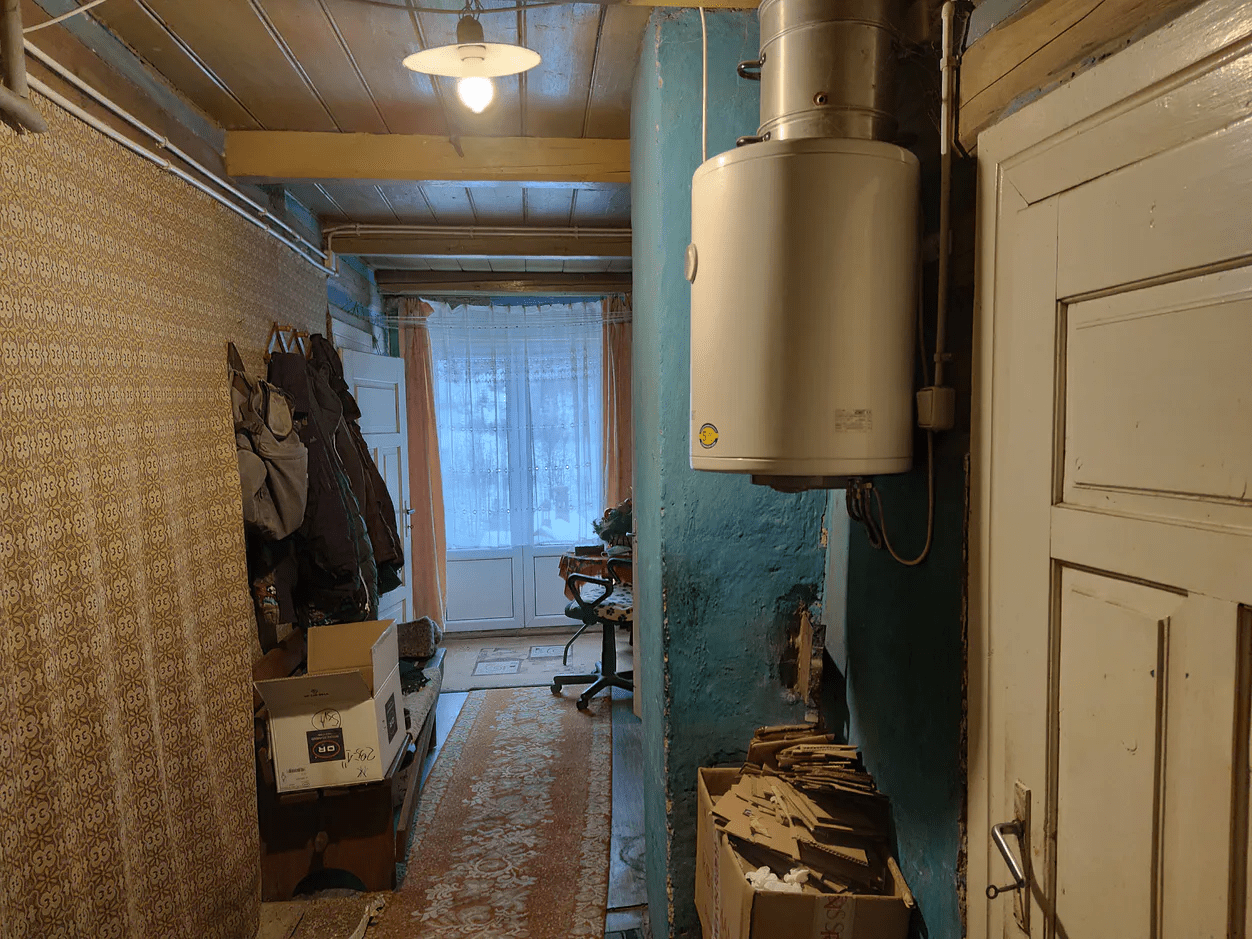
27 CONDITIONS
In the meantime, Maciej's health deteriorated.
For a while, he had been feeling weak, everything hurt, he experienced shortness of breath, and he stopped seeing with his left eye. As he recounts, his previous doctor had trivialized the symptoms for years; only the new doctor referred him to undergo an MRI, a tomography, to a cardiologist, neurologist, and diabetologist. It turned out that Maciej had diabetes, arrhythmia, thrombosis, polyneuropathy, and other conditions. He should have been on disability benefits for a long time. So he applied, but the Social Insurance Institution (ZUS) didn't grant him benefits, as they calculated that over the past 10 years, he lacked three months of work.
His doctor applied for a disability assessment at the social welfare center, and there he was granted it for three years. He also received a complete work ban, including what's known as "sheltered employment."
Since then, he underwent three surgeries on his left foot. The first one was in 2020, and the last one was in November 2021. Doctors recommended amputation, but Maciej decided, "We'll fight as long as there's no gangrene."
However, the worst is the polyneuropathy.
"It's muscle and sensory atrophy in my hands and legs," Maciej explains. "From my knees down and from my elbows to my hands. During an attack, my legs and hands turn into sponges, and I fall. The worst is when it hits me in the shower. If there's no one at home, I lie there for a few hours. Or I'm carrying coffee, and suddenly the cup flies out of my hand. On one hand, I don't feel anything: I could step on a nail and feel nothing. I broke the two bones in my foot and didn't feel it either. It just pinched in some places. On the other hand, polyneuropathy is constant pain. When the professor at the Pain Treatment Clinic in Krakow asked me where it hurts, I proposed that it might be better if I told him where it doesn't hurt. They connected me to current diodes. A healthy person struggles, and I lie like a log. 'How much longer?' I ask. And he says, 'We're done already.' 'What? You haven't even started yet.' Because I didn't feel a thing. Polyneuropathy alone is 24-hour pain. You need to take medication. I have morphine patches – like cancer patients."
Polyneuropathy has destroyed everything in Maciej except his kidneys. Even his eyes are affected. Changes in eye pressure bother him, so he needs laser treatments and injections in his eyes. But all his doctors are in Krakow, and he's been living in the mountains for three years. That's when, in 2018, he almost became homeless.
He called an acquaintance:
"Iza, I've got a problem, I have nowhere to live."
"We'll figure something out."
It turned out that her husband had an old house from his deceased sister, and they could rent it for a year. Maciej came, saw, and felt. It was March, the house was old and secluded, but surrounded by mountains and clean air. Given that Maciej also suffers from asthma and allergies, it was a good place. He stayed.
One year have turned into three, and soon he'll have to move out again. Maciej once again doesn't know what to do next. Where will he survive with 645 zł per month? The house's rent is symbolic: 300 zł. However, even with Tomasz's contribution, he's still paying 150 zł.
Electricity: 160 zł. Quite a lot, as the water heater is electric and hangs in an unheated corridor on a leaky wall made of wooden logs, so it quickly loses heat and isn't efficient. But without it, there would be no hot water for washing and cleaning.
Satellite antenna: the cheapest. 21.99 zł per month, to know what's happening beyond the village. A regular antenna doesn't pick up a signal due to the surrounding mountains.
And most importantly: the internet, the window to the world from this remote place, 60 zł. Maciej can't imagine life without it.
He doesn't pay for water separately, as several houses in the village have water from a mountain spring in the forest.
He also doesn't pay for septic tank disposal because a few years ago, the owner installed an onsite sewage treatment plant. All you have to do is occasionally put bactericidal powder in the toilet.
However, his medication costs always exceed his budget. Just for hypertension and arrhythmia, he spends 400 zł per month. And on his disability certificate, there are 27 disease conditions listed.
FIRST: ABOUT CATS
Maciej has trouble sleeping; he can spend the whole night writing on Twitter. He posts, and he already has 24.8 thousand of them on his account, or he chats privately for hours with people who follow him and are also awake. Unintentionally, he's built himself a solid group of acquaintances. People he's never met, doesn't know who they are, or what they look like – since even their profile pictures are of cats or dogs, not themselves.
But most of them are connected by their shared love for cats.
Maciej took care of them and fought for each one so fiercely that one day a friend from Twitter suggested, "Start a crowdfunding campaign."
So he did.
And then people once again reminded him of how unfair and cruel they can be. Although he posted pictures of rescued cats and documented every expense in updates, some accused him of dishonesty.
"If you don't want to give money, send a package," he appealed. "Some cans or pouches of cat food."
A wave arrived. Couriers every day.
People wrote in private messages: "Give me your address." But they didn't inform him about their plans. They even sent towels and old blankets to make beds for the cats. So that they'd be warm in the attic.
"And that's my escape from reality," Maciej reflects. "Because what kind of life do I have? When Tomasz isn't here, I turn on the TV, just to have something playing to break the silence. Sometimes I comment, complain, or start an argument. And suddenly I realize I'm alone, talking to the TV! When I was feeling down, one lady told me, 'Do you know why you're alive?' - Maciej's voice breaks. - 'Because you have those cats. They wouldn't make it without you.'"
Maciej falls silent, then gathers himself and continues in a disciplined voice:
"I had cats already 20 years ago, when I lived in Krakow. I experienced the passing of five of them there. Each one died in my arms. One half a year before his death, he wouldn't let me work on my laptop, he lay on top of me. I said to him, 'You know you're leaving?' He licked my hands. He meowed. He looked at me. He cuddled up.
I know cats usually run away from home before they die. So I begged him, 'Don't run away. I want you to be with me till the end.'"
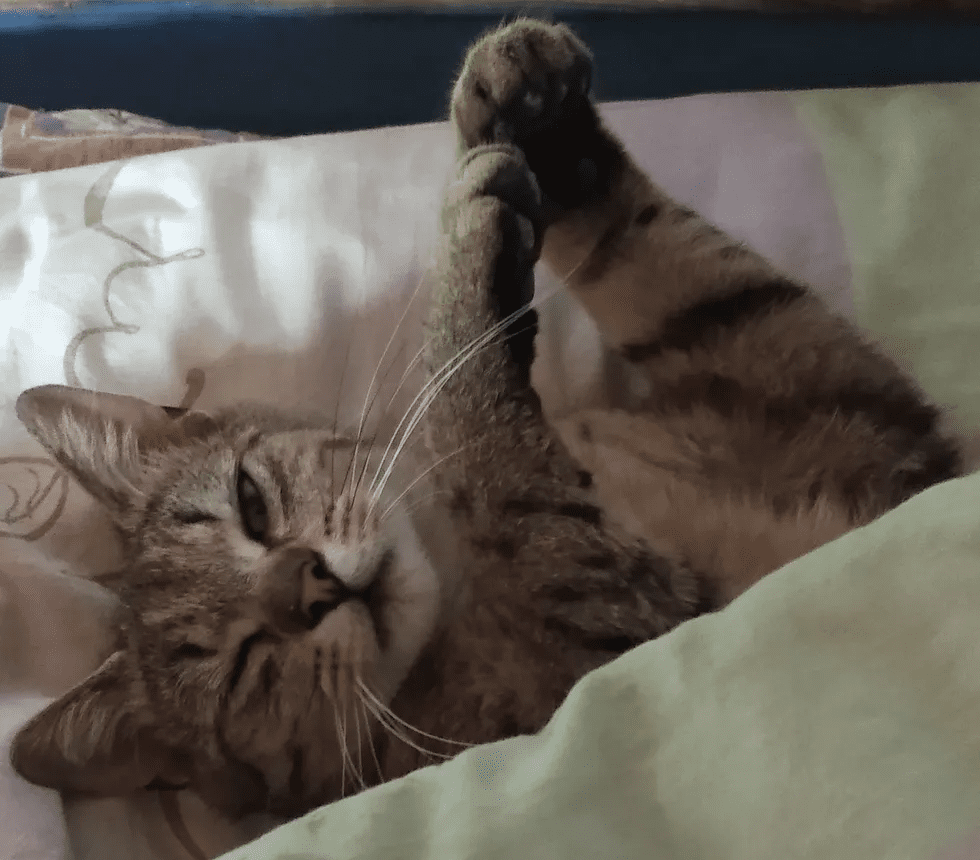
Maciej's conversations are still about cats, but beneath the surface, a sense of despair is palpable. As if, by saving those cats, he was trying to save himself. Or perhaps secretly hoping that someone would finally say to him, "I want you to be with me till the end."
But Maciej doesn't voice these thoughts. He doesn't complain. He comes across as strong and cheerful. He smiles, often expresses gratitude.
Only occasionally does he get hit by such physical and emotional pain that he asks on Twitter: "How much does euthanasia cost?" "Where can you have it done?" "What's the process?"
SECOND - FOR MACIEJ
"Listen. You take care of the cats, but you can't manage your own life," Maciej heard one day in 2020. It was the girls from Twitter, united by their love for animals and Maciej's account, Pustelnik5, who joined forces to support him.
"But what do you mean?" he bristled.
"Why don't you start a fundraiser for yourself?"
"But a fundraiser needs a purpose."
"Put down: 'for housing'."
"But nobody will donate for housing!"
"Maybe they will, maybe they won't. Give it a try."
The girls brainstormed and calculated: we need 8,000 people. And if each person donates just 30 złotys.
Maciej was still sowing defeatism:
"Where will we find 8,000 people?"
Finally, Tomasz set up the fundraiser. He provided the necessary documents, including medical records (warning: graphic images!). And Maciej began to believe.
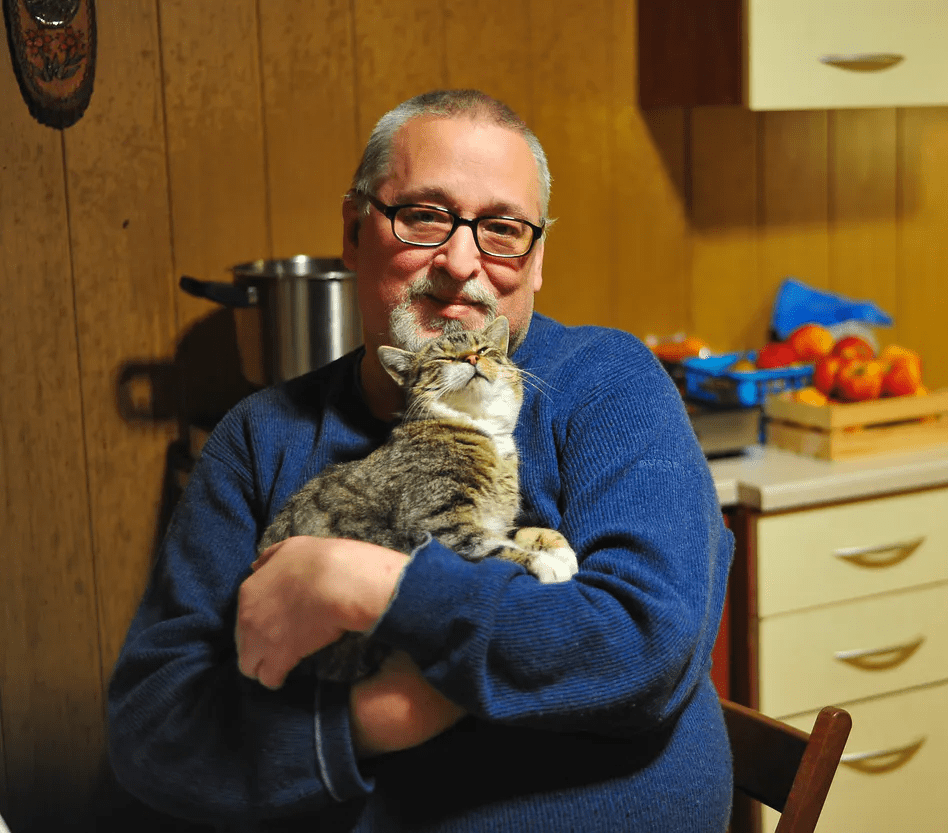
If those eight thousand people donated just 30 złotys once, it would amount to 240,000 złotys. That could buy a small and modest apartment. In the city or just outside, because the most important thing is access to medical care.
"Two rooms," Maciej muses, "because Tomasz and I would live together. He's disabled too and has a work ban. But since I won't live much longer, after my death, he would add another disabled person. When he passes away, another disabled person would move in. We want to legally secure this apartment so that it's never sold. Two disabled people should live there, but at least one must be mobile – to be able to go to the store, the office, the clinic – to take care of what needs to be done."
"And after my death, he would take this apartment under his guardianship, maybe by a social welfare office. So that it doesn't turn out that someone doesn't pay the rent and they auction it off. I'd like something to remain after me. Maybe a foundation? With my name..."
Maciej gets carried away by his imagination, and for a moment, he seems happy. There's one problem, though – people don't know about his existence.
That's why the fundraiser depresses Maciej rather than giving him hope.
He confided in a friendly woman he calls an "Angel”, because she sometimes sends him food for the cats, books, or some trinkets for him.
EMPTINESS
"I keep getting depressed" Maciej recalls.
Because just two weeks ago, he slept and spent hours on the folding couch left by the previous owner. Wooden rungs on the side, a metal frame, but the screws and hinges were so cracked that it sank in the middle, forming a V shape. So for Maciej, with his ailing leg, it was difficult to get out of it.
When volunteers from the Noble Box (Szlachetna Paczka) initiative came to him in November to ask what he needed, he, as usual, downplayed his needs: maybe some canned food, oil, flour, grains, rice, pasta – because when the snow falls, no one can reach here, and Maciej will have nothing to eat. Last winter, he opened jar after jar of applesauce that he wisely made in the summer, and he ate it every day with rice.
It was only as the girls were leaving that a thought struck Maciej:
"A bed!"
For him, but also another one for Marysia, an 86-year-old neighbor who lives further up the hill, in a house with a porch in the yard. She's also lacking everything.
And the beds arrived. A gray comfortable sofa for him, which he now has unfolded day and night as a bedridden patient. And another one for Marysia.
Maciej knows, because a few days later, Marysia came over, feverish and emotional.
"She cried with happiness. Because she never received anything in her life."
The Noble Box initiative also brought the requested food. Plus, dishwashing liquid, laundry detergent, and most importantly, coal.
For Maciej, black gold. Especially since its price increased from 840 złotys to 1570 złotys per ton since last year. Maciej already used to burn coal in the stove rarely, and now it's like a special occasion. In the unheated room where Tomasz, his companion, sometimes sleeps, it's about 5 degrees Celsius.
Maciej's room is warmer, thanks to the corner Masonry heater.
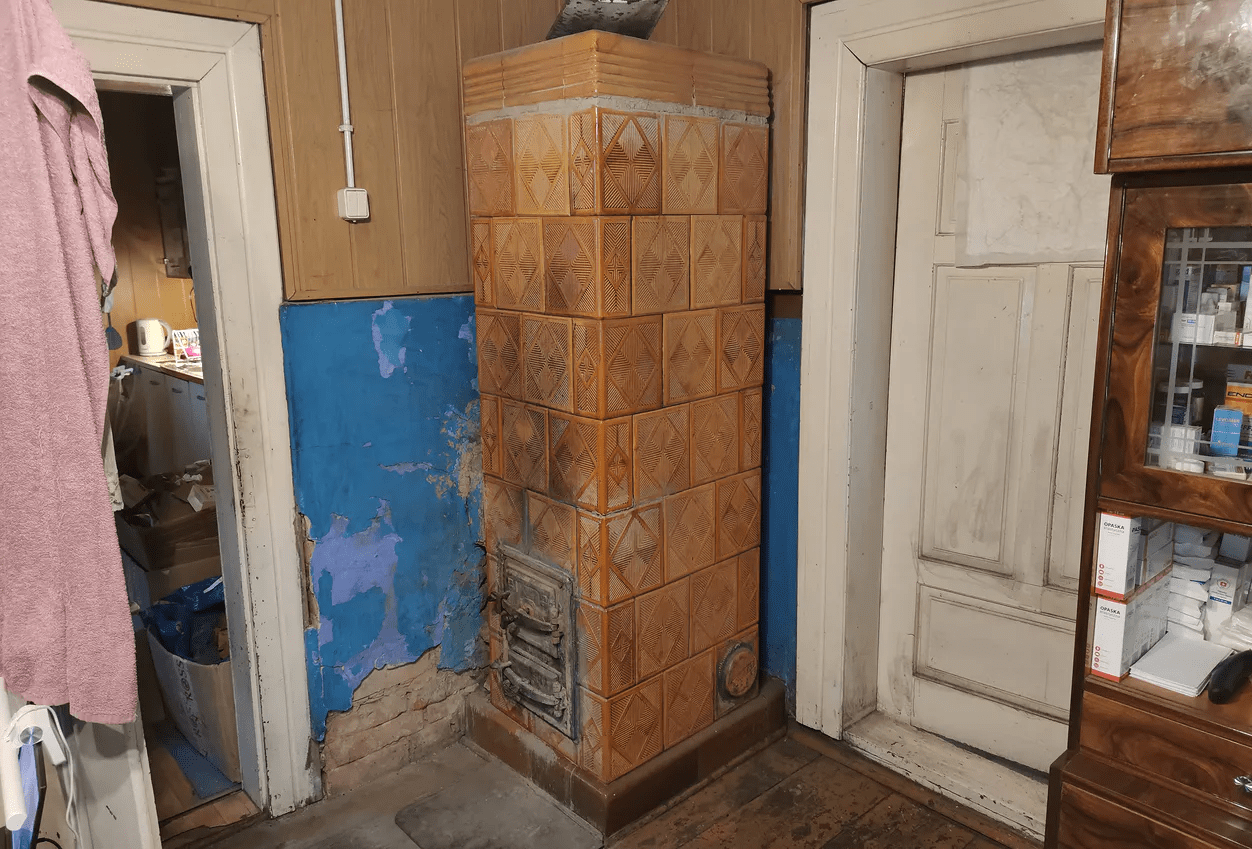
Maciej finds solace in the gifts and the memory of kind people, but he still feels the same as always.
And sometimes, he writes about it. From the deepest corners of his heart - during the nights. Things he would never voice on a sunny afternoon.
On December 21st, he posts a photo on Twitter: a living Christmas tree in the corner of his kitchen. Crooked and bald at the top, and so small that it fits behind the armrest of the corner seat.
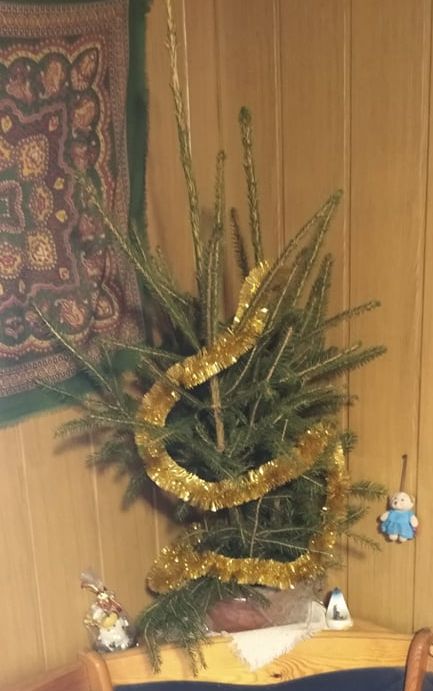
"That's probably my last Christmas, a tree brought by friends. It doesn't matter that it's empty, modest. It's just like my life. This golden chain represents the people who helped me this year, a handful of wonderful people. Thank you all."
And four days earlier:
"Sometimes I think I want to disappear. But all I really desire is to be found."

Ainda não existe uma descrição.





